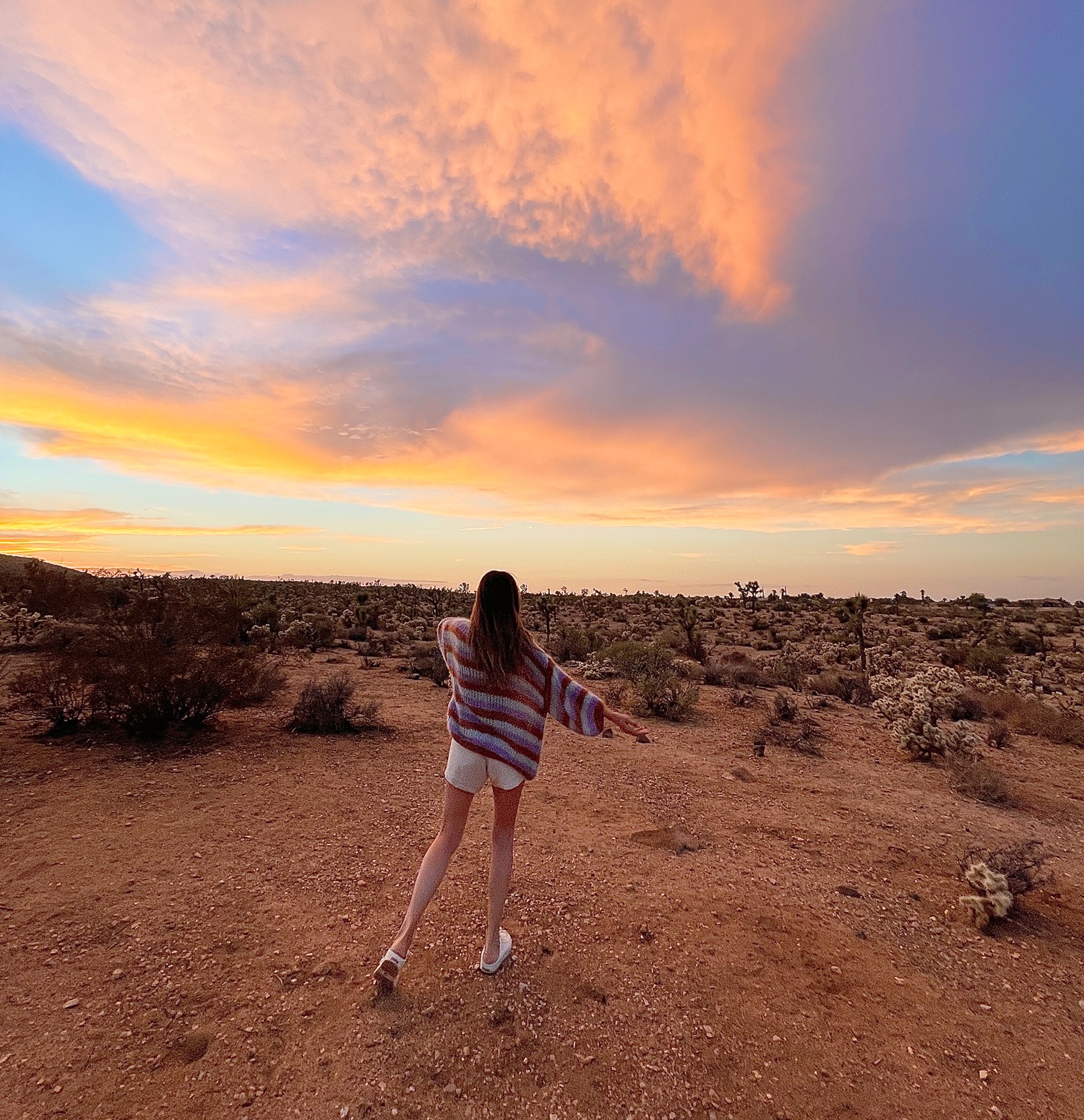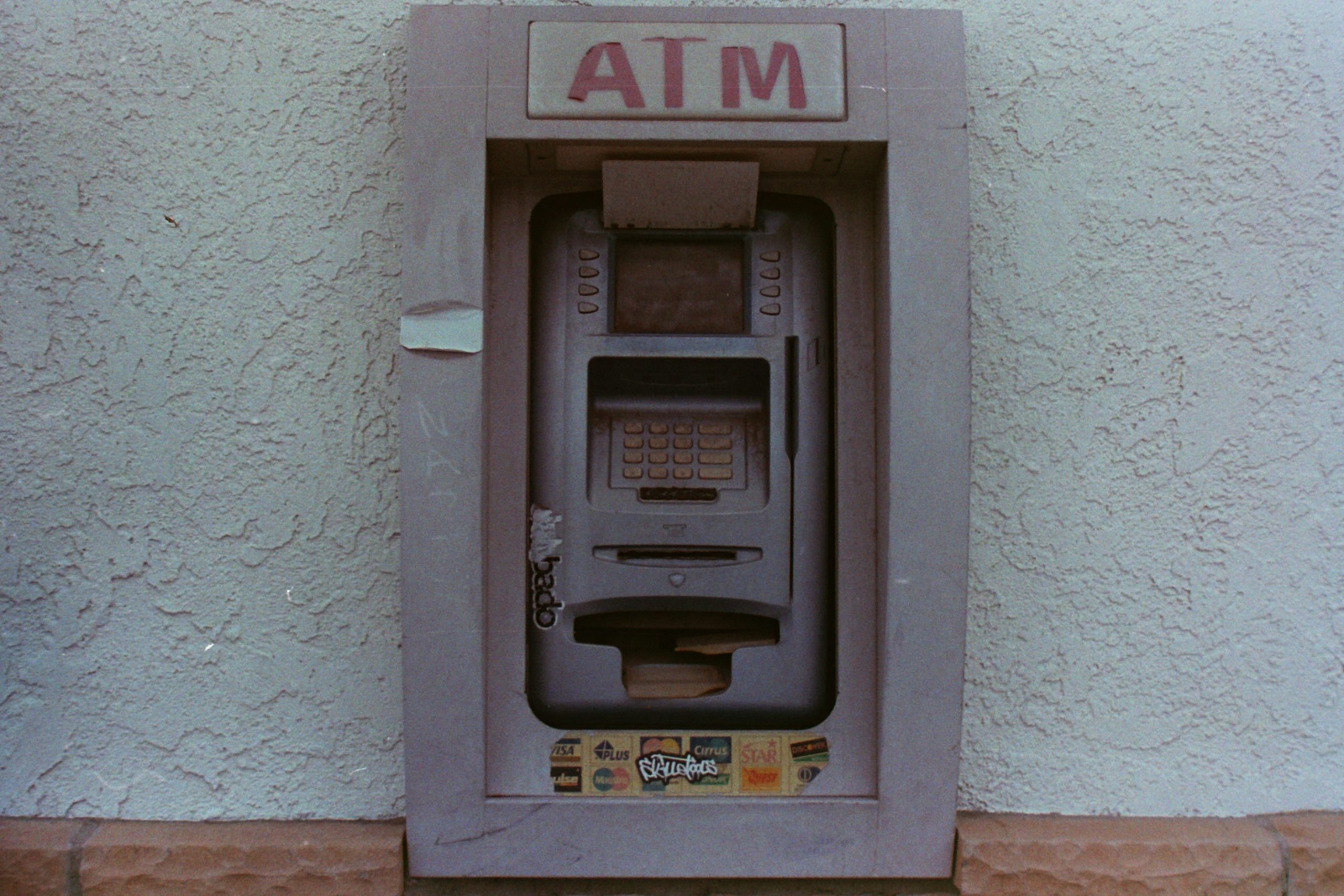If you’ve been following along with my past few posts, then you’re probably aware of the enormity of the online course industry. (Like, it’s big, y’all). Online courses are changing the way we learn, the way we share information, and the way we make money online. For me, online courses represent about 90-95% of my monthly income and that number continues to grow.

Yet, I constantly hear from bloggers who don’t think they can create a successful course in their niche.
So, are the rumors true? Are only certain blog niches equipped for selling e-courses? Or can anyone do this? Let’s chat.
Also, if you’d rather listen to this post rather than read it, then I’ve got the audio equivalent for you right here:
First, I’ll start by saying that YES, I believe just about every blogger in any niche can create an online course. Think about it: courses are simply about teaching someone how to do something. No matter what you blog about, you probably had to learn something that you now talk about, teach, or use in your posts.
But in order to do it successfully, you do need to keep a few things in mind…
1. Your blog must be informational > inspirational
This is perhaps the most important point in this list. What do I mean by “informational > inspirational”? Well, in order for you to prep your blog for an online course, you must share useful information more often than inspirational or opinion-based content.
Why?
Because with informational content, you’re setting yourself apart by teaching people how to do things.
Inspirational content is different. With inspirational or opinion-based blog posts, you’re sharing ideas, personal experiences, and “inspiration,” but you’re not necessarily encouraging your readers to take action or teaching them something new.
Let’s take an example.
On this blog, I share monthly income reports, which detail my revenue and expenses for my business. They also share some new strategies I tried or experiences I had that month, which my readers may find helpful. Yet, my income reports are mostly “inspirational,” with some information mixed into them.
But my income reports only make up 20-25% of my monthly content (1 out of 4-5 posts per month). The rest of my blog posts teach my audience how to implement specific strategies and take action so that they can grow their own blogs and businesses. Do you see the difference?
So, I wouldn’t create a blog of purely income reports, because while they can be inspiring, inspiration only goes so far before you need to teach something to your audience.
Let’s try a couple of other examples from two types of blog niches that you may not think could create an online course.
First up is a “food blogger.” Food bloggers often blog about recipes (see the graphic below). Recipes DO require someone to take action (like informational posts), but there isn’t a transformation involved, so they are more inspirational.

On the contrary, if you run a food blog, but know that adding an online course could dramatically increase your income and audience growth, then you may be wondering how to take your blog from purely “inspirational” to incorporating more information into it, too.
Below, you can see some information-based posts that would work well on a food blog, still allow you to post recipes, but begin to set you apart as an authority in your niche (thereby preparing your blog for a successful e-course launch).

Here’s another example that talks about the difference between fashion bloggers who could launch successful courses vs. those who would have a tougher time doing so.
Also, whether you’re a food or fashion blogger is not really the point here. Even if you’re in a different niche, try to understand the reasoning behind inspirational and informational content and then decide how you can apply it to your own niche. 🙂
In the fashion or lifestyle blogger case, “inspirational” content may look similar to what you see below…

And if you’re a fashion or lifestyle blogger who posts content like what you see in the image above, then I completely understand why you’d believe it’s impossible to create a successful course in your niche. But alas, it’s not.
Take a look at this variation in content:

Now, these posts aren’t necessarily meant to be from the same blog, but notice how each of them teaches something or provides some sort of transformation.
Instead of showing people your wardrobe, you’re giving them useful tips to help them build their own. So you begin to grow from fashion blogger to stylist.
Do you see the difference? The yellow images share posts that provide motivation, opinion, and inspiration. On the other hand, the blue images share posts that include “how to” information, tutorials, and topics that teach people something or provide some sort of transformation.
If you want to launch a successful course, your niche matters a whole lot less than you’d think. What matters more is the type of content you share on your site. And if you notice that your site is full of mainly inspirational content, then simply begin to incorporate more “how to” and informational blog posts.
That’s exactly what I did with this blog (which used to be largely a “lifestyle blog”). I simply started adding new types of content and creating e-courses on those same topics.
Psst: If you’re interested in using your blog to launch a profitable e-course business, then I created a free cheatsheet for you, which details the 8 steps you should take to get there. Click the image below to download it!
2. You must have a clear focus for your blog and a defined target audience
This is a biggie no matter how you intend to monetize your blog. You will ALWAYS reach more people and earn more money if you can focus your content within a specific niche and/or for a specific demographic.
Why?
Let’s explore an example. Let’s say that you blog about marketing, beauty, books, and design — basically, all of the things you’re interested and want to write about.
Someone visits your blog from Pinterest or Google because they wanted more information about graphic design. They wind up reading a killer design-related post on your site and then click over to your main blog page to see what other content you have cookin’.
But…what’s this? There are posts on completely different topics! Mascara reviews? Social media marketing tips? Where’s the rest of the “graphic design” content?
So, they likely click away from your blog, never to return. They wanted something specific, which you gave them, but it was buried underneath a bunch of content that isn’t relevant to them.
If you’re creating a blog like this and not seeing the growth you want, then this is oftentimes the culprit.
It’s also why it becomes much more difficult to launch a successful course. Since you have a lot of different topics on your blog, you’ll also have a lot of different types of people in your audience. So, if you created a course on “design,” it’s possible that really only 25% of your readers would be interested in your course, since “design” only constitutes 25% of what you talk about on your blog. See what I mean?
Now, if your blog was focused on just one of those topics, like graphic design, then you begin to set yourself apart as an authority on that subject. You attract more of the right people to your site. And when you launch your course, nearly 100% of the people in your audience would be interested in the subject.
For help with narrowing your focus and choosing a niche, read this post.
3. Your course may be about teaching people how to do what you do
Blogging is pretty incestual. 😳
What I mean by that is that bloggers tend to read other blogs. You’ll certainly have some people in your audience who don’t have or want a blog, but then there will be other bloggers in your niche who read your blog for fun. And those bloggers are probably paying attention to what you’re doing, too.
For example, if you’re a beauty blogger and you’re having trouble thinking of an e-course that you could teach people, then consider that there’s likely a chunk of your audience who are other aspiring beauty bloggers.
So, what about making a course that helps them learn how to do what you do? Ya feel me?
Pinch of Yum is a popular food and recipe blog, but instead of creating courses about cooking, they’ve created workshops that teach other food bloggers how to take better photos. Boom.
4. The price could differ depending on what you sell
Finally, depending on what kind of course you create, the price may be different than other courses out there.
As a general rule of thumb, I think everyone should start by pricing their course for at least $100 to ensure that the course is worth your time and effort. However, some courses can be even more affordable, while others can range from $1-2k or more.
$100+ courses usually have at least 2-3 hours of video content within them (which may sound like a lot of content, but honestly is not as much as you think).
But what if you’re, say, a home decor blogger, where pricey e-courses aren’t the norm. So, you may decide to create something smaller, like a course about how to style a bookshelf like a pro (I actually have a student who did exactly that!).
You may not be able to charge hundreds of dollars because it’s less content and not a 360 transformation (like a course about decorating your entire living room), but you could still charge a competitive price for your work, since you’re helping people with something they want to learn. (At the time of writing this, the “Bookshelf Styling Class” is $49).
But the plus side of this is that you can create multiple mini courses and have repeat customers who end up buying them all!
Now, on the other hand, let’s say you create a course that helps people increase their income or completely transform their life (like a weight loss course). These are often set at a higher price, because your customers are either able to make their money back through your strategies or they are transforming their lives in a big way.
All of this is to say that no matter which blogging niche you’re in, you absolutely have the power to create a successful course. You may need to tweak your blog, content, or pricing a bit, but it’s certainly possible to do it well.
If you’re genuinely interested in turning your blog into a business with e-courses, I recommend downloading my “8 Steps to Turn Your Blog Into a Biz” cheatsheet. Just click here or the image below.




















Melyssa, I absolutely love having the audio versions of these posts to follow along! 🙂
The examples you gave of inspirational vs. informational were definitely helpful, concrete examples of what to do to move in the course creation path. It’s helped me realize I need to plan out the “bigger” picture of what I post so I’m not doing too many “inspirational” posts in a row.
Thanks so much for the kind words, Monica! I’m so glad you found this post helpful and best of luck to you 🙂
Love the blog post Melyssa so on point 🙂
Thank you so much, Ikeashia 🙂
This is really helpful. I run a book blog but wasn’t sure if it could be monetized I have a decent following so I am definitely going to try your suggestions!
Yes! Please try them out and keep us posted on your progress 🙂
Great post, Melyssa. I love how you break down inspiration vs information. MAJOR KEY.
Thanks Maya! I’m so glad you found it helpful 🙂
This is a great post! I’m in the process of trying to do this for a travel blog and definitely need to look more towards the informational route 🙂
Thanks so much Jordan and best of luck to you 🙂
This is exactly the post I needed to read! I am a food blogger and this struggle is real 🙂 going to go start working on more informational vs inspirational posts 😉 My dishwasher thanks you!
I’m so glad you found it helpful, Heather 🙂 Best of luck to you!
good luck
I’ve always wondered about this! Thanks for sharing, it’s given me a lot to think about in regards to blog direction. Now I’m going to brainstorm ways to mix up “inspirational” and “informational”.
Gemma | http://activelygemma.com
Yay! Good luck, Gemma 🙂
This is good. I’ve been hearing a lot about premium pricing for e-courses recently. Yet I’ve also heard about giving your audience a lower budget option first to get them in the mood for buying from you. When I launch my first course I was going to start with a smaller course $60 first then perhaps a larger one later. Some bloggers however say jump straight into premium pricing but I think this would scare off my readers.
I’m so glad you found it helpful! Yep, I recommend starting with a smaller course before putting all of your eggs in one basket with a premium course. Best of luck, Amy 🙂
I guess it is possible to create an online course out of any niche but the hard part about it is being able to look professional or being able to look like an expert in that niche so that people will actually believe you and avail of your coarse. You know, make yourself legit.
True! That’s where things like branding, copywriting, and marketing all come into play. But before you dive into those strategies, you must determine whether or not your niche would be ideal for a course in the first place. Best of luck to you Heide and thanks for the comment 🙂
All very good points. I have always made it a mission to create as much USEFUL content as I can, not just “inspirational” posts, as you pointed out. As a matter of fact, I think that distinction is also a big part of why many bloggers never get off the ground at all.
That said, lately I’ve started to feel weary of the increasingly pervasive idea in online business that everyone should be doing e-courses. Even if everyone COULD create and sell them, I don’t think that means it’s the best possible solution. It feels like the saying: if all you’ve got is a hammer, everything looks like a nail.
Obviously I’m not saying that e-courses are a bad idea, but I’d like to see more time spent on helping people come up with a wider variety of creative, exciting ways to grow their business instead of just the comparatively one-size-fits-all solution of digital info products. Maybe I’ll make an e-course at some point, and maybe it’ll be a nice little boost, but I don’t want it to be my bread and butter. I feel like there must be more monetization ideas that are more suited to me but still deliver high value in a scalable way. I wish there was more out there for people who aren’t totally married to the info product idea. Anyway, just my $0.02 on the topic. 🙂
Thanks so much for sharing your thoughts, Suzanne. Not every niche is a good fit for an online course, which is exactly why I wrote this post. I love your idea of helping people through other creative ways and I hope you find what works best for you 🙂 Good luck!
well said
I completely agree! I’m in information self-improvement niche (I’d like to add that by being informational, you can automatically be inspirational!). However, I’m finding it hard to come up with a worthwhile course topic. I’m focusing on a podcast right now and hope that inspires me to create something else.
Great post
I don’t have a blog, but I really would love to start one AND create an income from it. Making $1-5k from a blog would literally change my life in such a drastic way.
It looks like you’ve got some work to do then, Brianna 🙂 Best of luck and please keep us posted on your progress!
Is it June 1st yet? I’m ready to join your Blog Hive!
I’m so excited to share it with you, Brianna! 🙂 Stay tuned!
Great post Melyssa! I already have a blog and developing an ecourse that niche (ladyboss branding!!) but this post made me want to start another blog – perhaps a creative wardrobe blog haha. I always love reading your posts, so many nuggets of wisdom!
I’m so glad you liked it, Sam! Thanks for the kind words and best of luck on creating your e-course 🙂
great advice
Thanks so much, Chad 🙂
Comment by: Stephen Walker
Hi Melyssa,
I am very interested in your “Blog to Biz Hive” e-course that is open for registration at the moment.
I have one question: The course starts on June 15
I won’t be around until 1st July. Can I pick up the course then and follow it at my own pace?
I don’t have a direct email for you so I am contacting you here as it seems to be the only point of contact I have.
Hey Stephen! Thanks so much for your interest in Blog to Biz Hive 🙂 The course will only be open for enrollment until 11:59pm on June 14th. After that, I’m not exactly sure when the next time you’d be able to enroll would be.
You will have lifetime access to the lessons though so what you can do is pick up the course before June 14th and take it at your own pace whenever and wherever you like!
If you have any other questions, please feel free to let me know 🙂
Comment by: Stephen Walker
Hi Melyssa,
Thanks for your prompt response.
I know I have missed the cut-off for the bonus items, but its the main course I am interested in.
I did have another question for you but, I have forgotten it so it can’t have been important.
Great post! Thank you for the great tips.
I’m so glad you liked it, Elaine! Thanks for letting me know 🙂
Awesome post, Thank you for the advise Melyssa…
Thank you, Febriana and best of luck to you 🙂
It’s tough to replicate your success
It was tough getting to where I am and if it was easy, everyone would be doing it. Good luck Chad! You’ve got this 🙂
Hi Melyssa, First of all I would like to thank you for such a valuable information about the online courses and bloggers. I have seen a new website ISM training which can also offering the online courses.
ISM Dubai
Thanks for this post! I’m a yoga and wellness blogger and have been trying to figure out how to design a course that isn’t just a yoga video and this has given me some ideas!
Awesome! Best of luck with your yoga course and please keep me posted on all of your progress 🙂
I think that this is a topic overlooked by the majority of new bloggers. Some get started with the mindset that blogging is an overnight success story, while others feel that they can blog about everything to attract EVERYONE! (All the people!) As I’ve studied and learned, I’ve begun to narrow down the audience that I’m targeting. As a result, people are starting to know what I do and know my audience, rather than assume that everyone can be the perfect fit for my little blog.
This is such an awesome comment! You’re absolutely right about having to narrow down your audience because that’s how you connect with the right people. Thanks for your insight, Katelin 🙂
Well stated,
This is awesome. I often write about providing information rather than sharing thoughts in order to create posts that can lead to making money. I like the examples that you gave for the food bloggers. I think many food bloggers run out of ideas for informational posts or purely focus on recipes. There is a wide range of topics available that will draw readers on to their blog so they can create a call to action for a product or email list.
Your comment is spot on! Thanks for sharing with us, Katina! Best of luck with your niche and please keep me posted on your progress 🙂
Melyssa, I am a big fan and have learnt so much from your blog. How do you add Audio to a blog post like you did in this awesome post? 🙂
Thank you
Thanks for the kind words! For the audio, I record in Garageband and upload it to Soundcloud 🙂
Thanks so much for the shout out, Melyssa:) xoxo
Of course! Keep up the amazinfgwork, Heather 😀
All of your ideas and steps are awesome about online course . A lot of thanks for sharing this post with us .
No problem! I’m so glad you liked it, Rosa! 🙂
All the information is quite helpful Melyssa. Thank you for sharing it with us. However, would you please write about how to create an online course in parenting niche?
Thanks for the kind words, Puspanjalee! This post might be able to help you out:
https://melyssagriffin.com/launch-ecourse/
Thank you Melyssa!
Hi Melyssa! Thanks for that article! I am a travel blogger that wants to make an e-course on blogging, similar situation to the food blog you mentioned! My question is: should I add informative posts about blogging to my travel blog in such situation or would that mess up my niche? I had a look at Pinch of Yum and it seems that when you click on e-course you also get redirected to another blog (food blogger pro). What is your advise on that matter? Thanks a lot!
Hi Marta! I would recommend not sharing informative posts about blogging on your travel blog as that would dilute your travel blog content and your travel blog would lose its focus. Similar to Pinch of Yum, I would start a different blog about blogging and refer to your travel blog as a case study. Good luck! 🙂
Thanks Melyssa! Your articles have inspired me to start my website named ‘Elevanto’! Elevanto is all about inspiring people to come out of their shell and inspire others through public speaking.
My next big goal is to create a course. However, I have a couple of questions:
1) How do I understand what my existing small email list wants when they aren’t engaging in conversations much?
2) I was wondering if doing a free mini online course with an FB group would be a good option? And then probably make a complete one? Would lve to have your opinion Melyssa 🙂
Hi Esmaeel! Elevanto sounds like a great idea and I’m excited to hear more about your course!
In regards to your questions:
1) Have you created a FB group that people can join? FB groups are a fantastic way to engage with your ideal audience and to see what they want to learn.
2) You can definitely create a free mini course and then funnel the participants into a complete course. I think that’s a great idea but definitely do your research and see if this is something that your ideal audience would actually want before you create it.
Good luck!
MELYSSA GRIFFIN Thanks for sharing to much awareness 🙂 I learned a lot of things through this article 🙂 You were really helpful 🙂 I really appreciate your work and thoughts 🙂
Thanks so much for the kind words, Oliver! Best of luck to you. 🙂
Wow! This was incredibly helpful. I have been on the fence about really going for it with my blog but this gave me the push I needed. I am an aspiring beauty blogger who just got started and wasn’t sure if ecourses were even possible in my niche. So excited to hear that I can make it work. However, I do have a few questions. What kind of platform can a beginner like me use to create an ecourse? As I said before, I’m very new to this idea and I guess I’m not sure on how to get started on the ecourse side of things. Thanks for you time! 🙂
I’m so glad this post gave you the nudge you needed, Cassie! You can simply use Powerpoint (PC) or Keynote (Mac) to create your slides and then use Camtasia (PC) or Screenflow (Mac) to record and edit your video. Once you’ve finished creating your online course, I recommend hosting it on Teachable (teachable.com). Good luck and please keep me posted on your progress. 🙂
Great great post Melyssa!
I do want to tell you something that is really annoying though, for me at least.
I´m finding great and many tips on your blog posts and I want to be downloading your sheets to implement, but every-time I click on one of them I get redirected to the thank you page, and so I loose the post I was reading. Am I explaining myself?
It would be awesome If when I clicked to download a sheet, it would open in a different tab.
Just thought I would let you know!
Congrats again! Great value here!
Thanks for your feedback, Marcia. What you can do to prevent this is you can right-click the link and open it in a new window so that the blog post tab stays open. I hope that helps. 🙂
Wow! This post was just what I needed! I have a lifestyle blog and it’s the very example you are using LOL It’s so great to know there’s hope! In fact, all my friends keep asking me for advice about blogging, so there’s my course future! ????
Nice, Eleanna! Best of luck to you and please keep me posted on your progress. 😀
Thanks for this – fantastic post. Really helped me answer some final nagging questions I had about where I was going with my blog and how to monetize it.
Yay! I’m so glad this was helpful for you, AS! 🙂
Indeed this post helped me and clarified those doubts in my mind, i thought they will be the unanswered questions forever, but with this post of your’s, all git cleared up. Thank you Melyssa! 🙂
Yay! I’m so glad this post helped clear things up for you, Prasanna. 😀
Hi, Thanks for sharing the information. Now a days online education is very important to every one and these information will really help us a lot..Apart from these if any one want to know more about big data in education visit-http://www.scholarspro.com. Here from you get many more information which will helpful to you.
Hi Melyssa! Thanks for a great post! I’d love to be able to create online courses, however, my blog is about local (Chicago area) events, restaurants, activities, etc. What kind of course could be done for that? I’m very interested in doing one but also confused about how to go about it.
Hey Gina! Thanks so much for your comment. Some niches (like ones about a city/country) might not do as well in the online course path simply because there’s not a lot of “how-to” to be able to teach. In your case, I would actually recommend collaborating with other businesses in the Chicago area and focusing on affiliate marketing, advertising, and sponsored content. Good luck! 🙂
Hello Melyssa,
very useful information, thanks for sharing.
Of course! You’re welcome 🙂
Love this post! But omg this part about focusing on one niche STRESSES me out Bc my blog covers ALL KINDS of stuff and I literally cant read imagine narrowing it down. Like, the thought of only blogging about fashion makes me want to blow my brains out ????????♀️???? and I love writing about self improvement and productivity and career too! Oh boy. Do you offer consulting? I could use some!
Hi! I do not offer consulting, but I do highly recommend niching down if your goal is to grow an income and a big audience from blogging. It’s easier to trust a blogger if their content is primarily focused on one topic 🙂
You make courses sound so great!! This is such a helpful article and it made me super excited about creating a course ???? However I’m a little worried my niche might be one of the ones that doesn’t translate well into courses haha. I’m a feminist/women’s humor blogger… what do you think?
Hi Juniper, I’m glad to hear you are excited to create a course 🙂 It’s tough to say what your course could be about, but I recommend sitting down and doing a brainstorming session, and maybe even surveying your audience to see what they might like to buy from you. A course isn’t always the best monetization method for every blogger, but it’s one of my personal favorites 🙂
Really very impressive way of creating and advertising online courses Melyssa.
Are you using any specific platform to deliver online courses?
Thank you for your kind words, Joseph! 🙂 I currently use Teachable to host all of my online courses. It’s a great platform, and they even have free plans available if you’re just getting started.